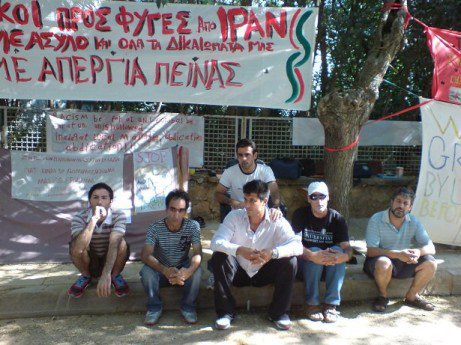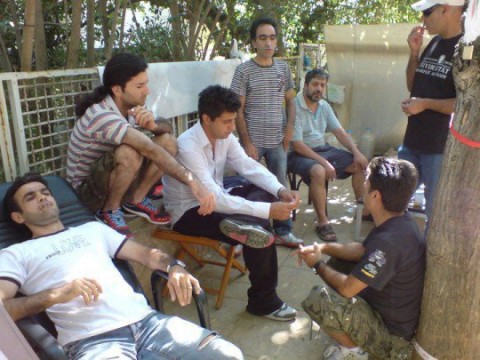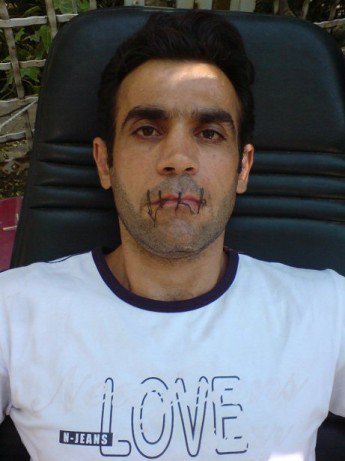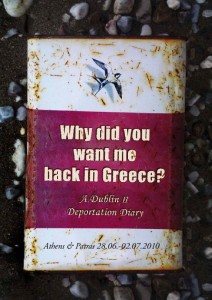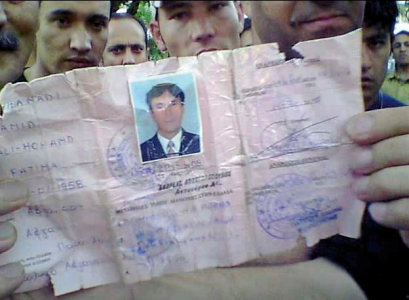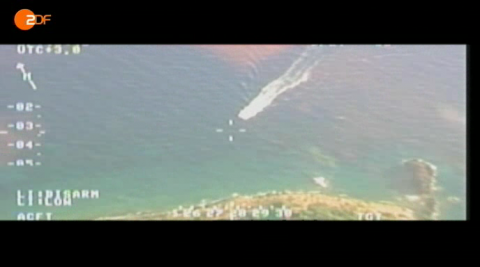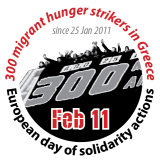The following testimony of Amin Fedaii, a 16-year-old afghan refugee, is alarming. More than 20 refugees (mainly from Afghanistan) died while trying to flee from Greece and to reach their relatives and friends in other European countries.
The asylum system in the crisis-ridden Mediterranean country has entirely collapsed. Refugees cannot find protection neither any income and often even no accommodation. Against this background deportations to Greece according the Dublin II-regulation have been stopped in many European Countries, but the affected persons got stuck in unbearable conditions in Athens or in the harbour-cities of Patras and Igoumenitsa. While EU-citizens can travel without any problems, refugees are trapped: a regular exit is refused, although they have – particularly if they come from war-zones like Afghanistan – good chances to receive a residence permit on humanitarian grounds in many EU-countries.
Amin survived and is now living in an accomodation for minor refugees in Hessen, Germany. But he had to experience the meaningless death of 20 persons by drowning, because firstly entry and afterwards their rescue has been refused: 20 more victims of a merciless european border regime, which obviously is calculating with the death of refugees.
More than 2.000 refugees and migrants died in the Mediterranean Sea within the last 6 months, mainly when they tried to reach Malta or Italy from Libya or Tunesia. Dead bodies in the Mediterranean Sea are washed ashore daily. Besides the bodies also their faces, hopes and dreams are lost. These daily deaths, be it at the external or internal European borders, remain shocking.
The victims are warning and accusing: This Europe is not safe, human rights and refugee rights have lost all relevance! They ask the ones alive to take action against this Europe of Frontex – borders and walls. And to struggle and to invent a Europe of solidarity, overcoming the deathly migration regime as it happened in history with the dark sides of the Middle Ages.
When I tried to flee Greece
I first tried to flee Greece in January 2011. In Athens, they put us in one truck with 200 persons. Beforehand, they told us that the truck would have air conditioning. It had not and so we ran out of oxygen soon with so many people. Soon many people fell unconscious. We started knocking the boards and screaming for help, but the driver did not react. One person had decided not to enter the truck before and we had his mobile number, so we called him to come and open the door for us, because we where not far yet. He did not come quickly, so we had no other chance and we called the police. They picked us from the truck and kept us for one night in police station.
Continue reading ‘Dublin-Deaths between Kerkyra/Greece and Bari/Italy (15th of January 2011)’
